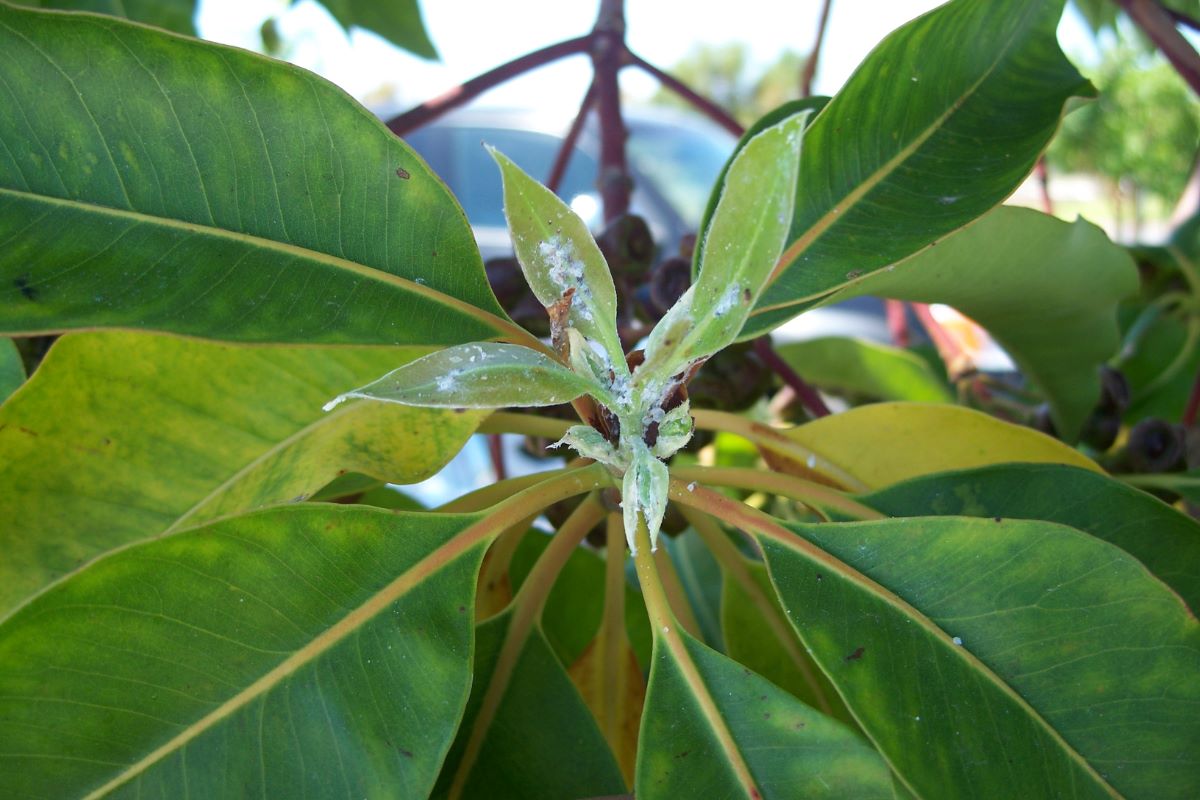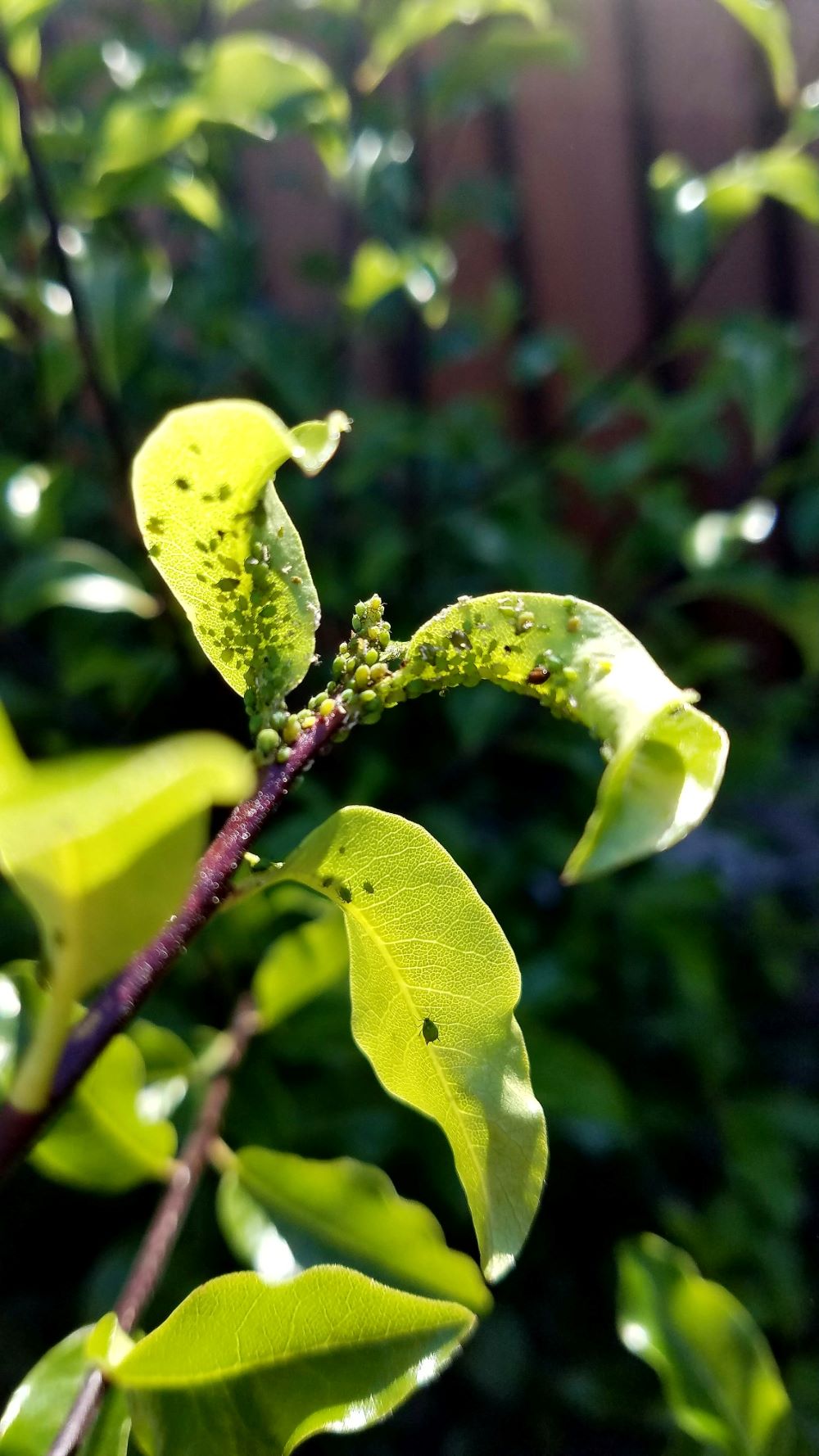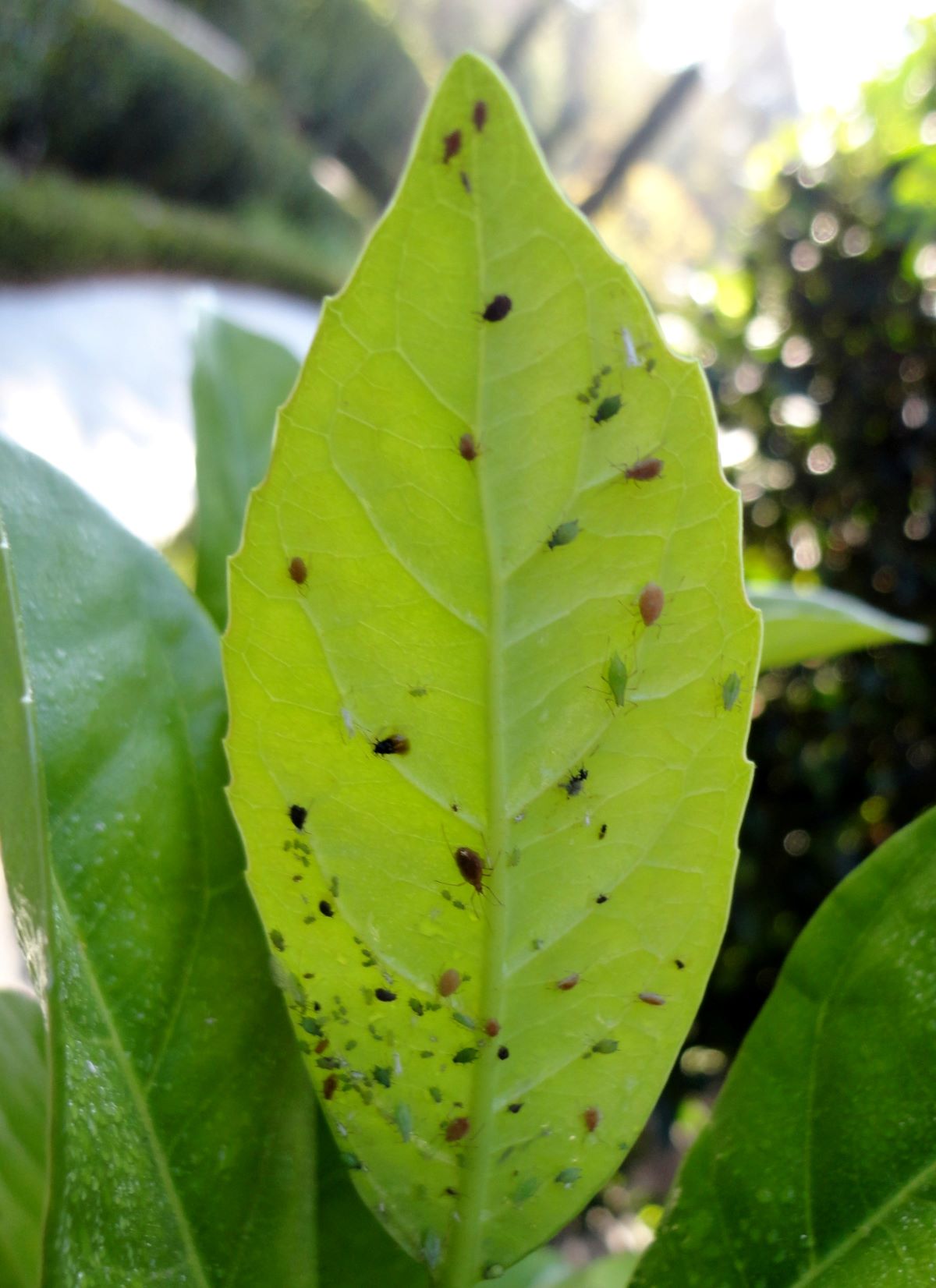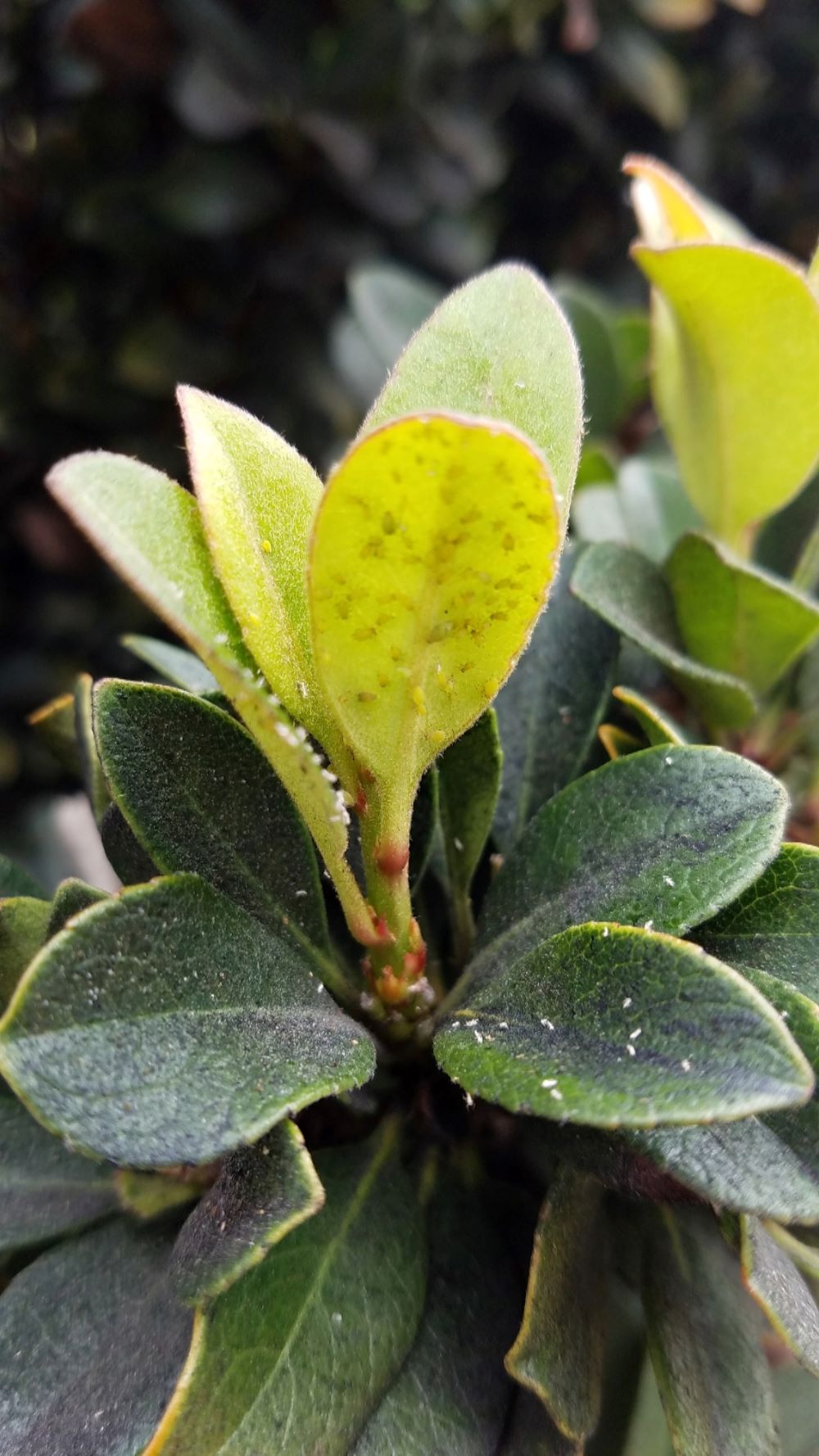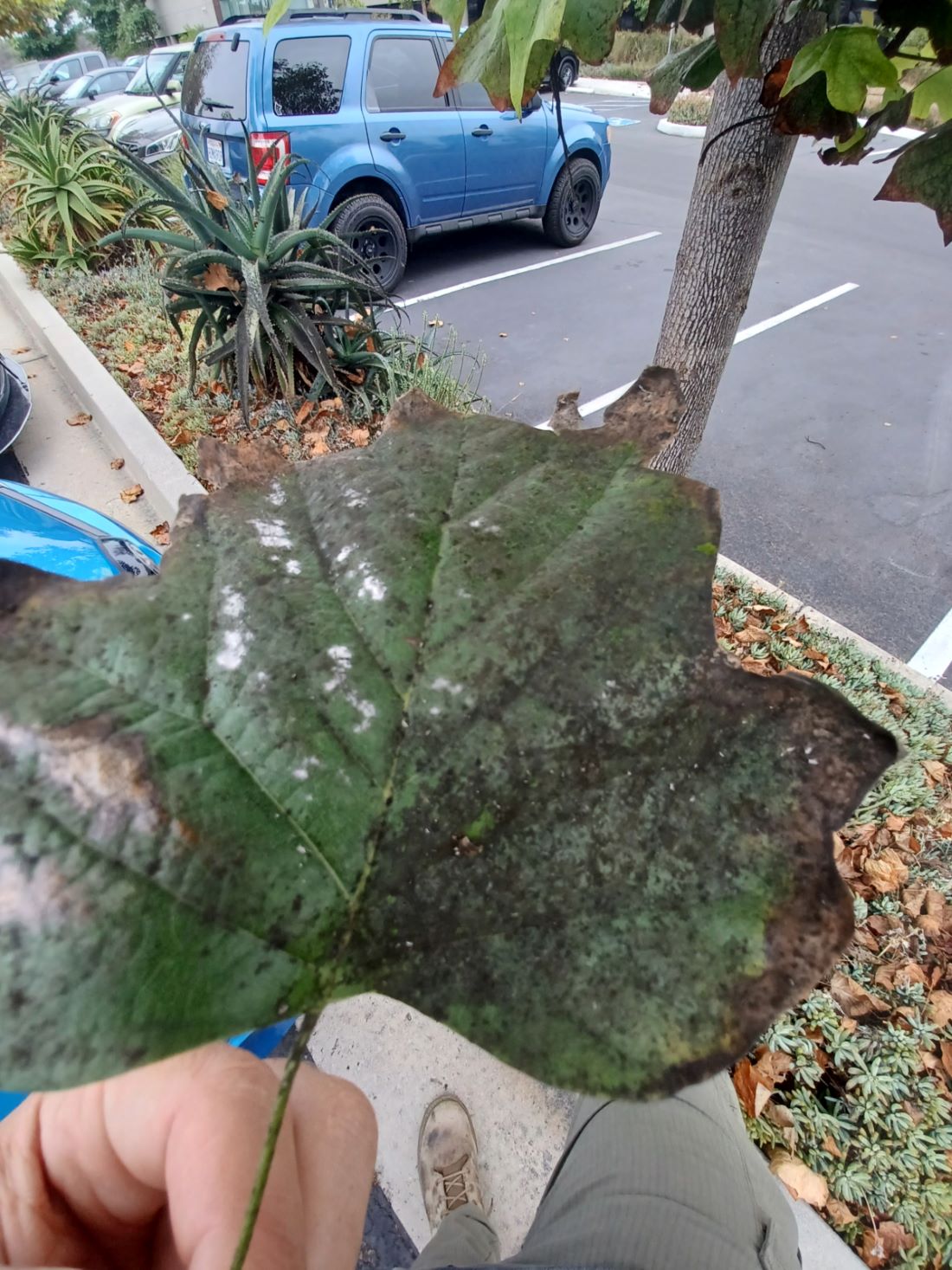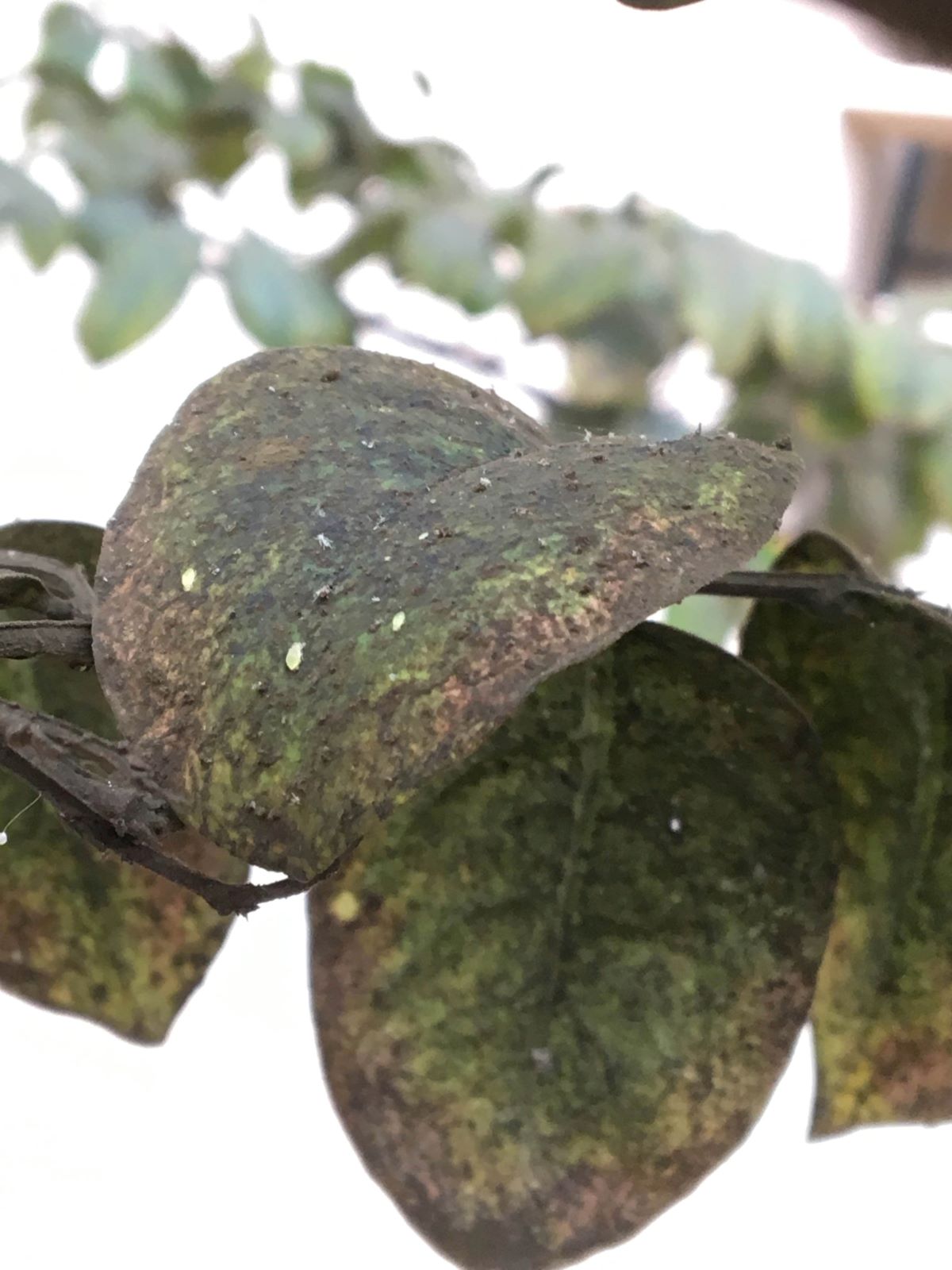Aphids may have multiple generations in a year and due to California’s mild climate can reproduce as often as 12 times a day without fertilization. According to UCIPM research, when weather is warm, many aphids species can develop from newborn to adult within a week and then produce up to 80 offspring of their own, increasing aphid populations with great speed.
Large populations can lead to extensive feeding which produces a sticky exudate known as “honeydew” sap on leaves, limbs, and any surrounding plants or objects. Honeydew sap develops a fungi which coats the leaves of a plant with “black sooty mold” inhibiting sunlight penetration causing further damage to the plant. Black Sooty Mold as show in the photos below requires physical removal and time to break down or fall off with old leaves.
What are Aphids?
Aphids (family Aphididae) are a group of small, soft-bodied insects with tubelike structures called cornicles that distinguish them from all other insects. These mouthparts are used to feed by piercing stems or leaves and sucking the nutrient-rich liquids out of plants. Aphids affect almost every plant and can be serious pests by stunting plant growth, causing deformation of leaves/flowers and transmitting plant diseases. Aphids multiply quickly and in large numbers can weaken plants significantly. Various species of aphids exist and can be specific to certain plants, the species are often difficult to distinguish however management of most is similar.
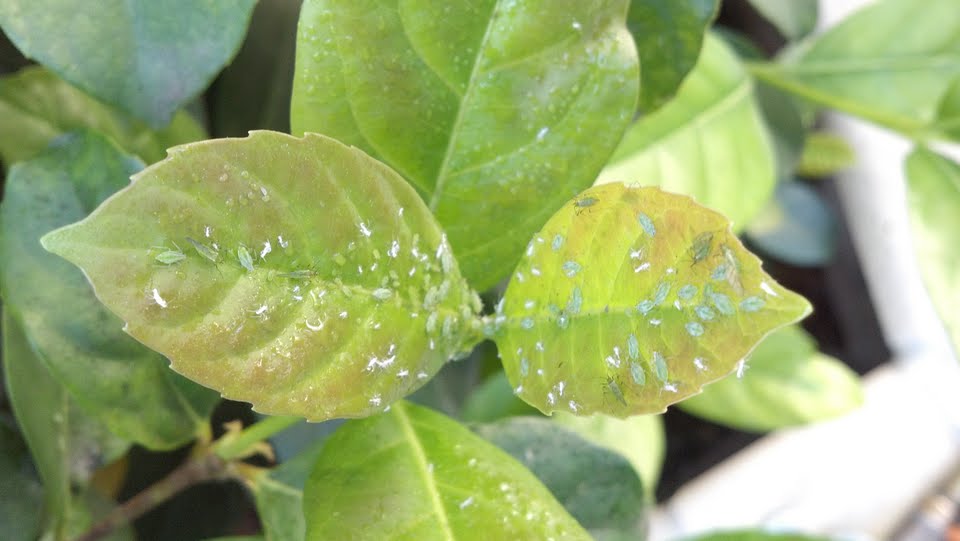
Identifying Aphids Damage
Aphids damage varies by the species. Most aphids feed on variety of plants, attacking leaves, stems, buds, flowers, or even fruit. Watch for telltale signs of aphids such as:
- Leaves or stems covered with “honeydew” sticky substance
- Stunted/curling or yellowing of leaves
- “Black sooty mold” on leaves or branches
- Distorted or deformed fruit/flowers
- Wilting or growth distortion from toxins
How Can We Help?
Aphids have been found to cause the greatest damage in late spring when temperatures are warm (65-80°f). Monitoring your plants regularly for early infestation are key, checking underside of leaves and for evidence of natural enemies. Aphids may transmit viruses from plant to plant which mottle leaves and prevent plant growth. When damaging numbers are present they may be controlled by a pest management program. Here at APC we offer contact, systemic and organic treatments to help control aphid activity. For more information on identifying and implementing the best pest management program for you and your plants please contact our team.
